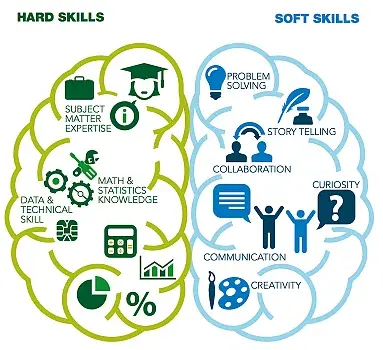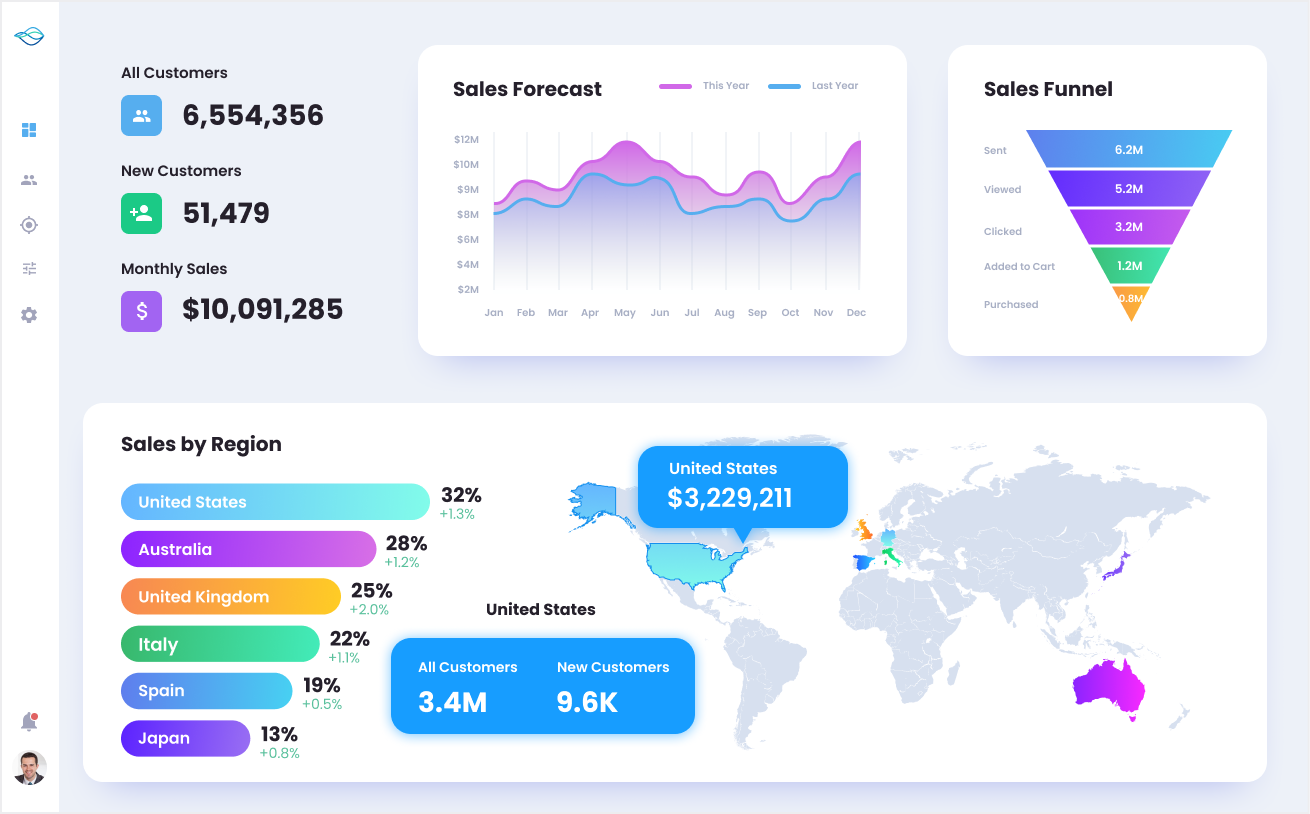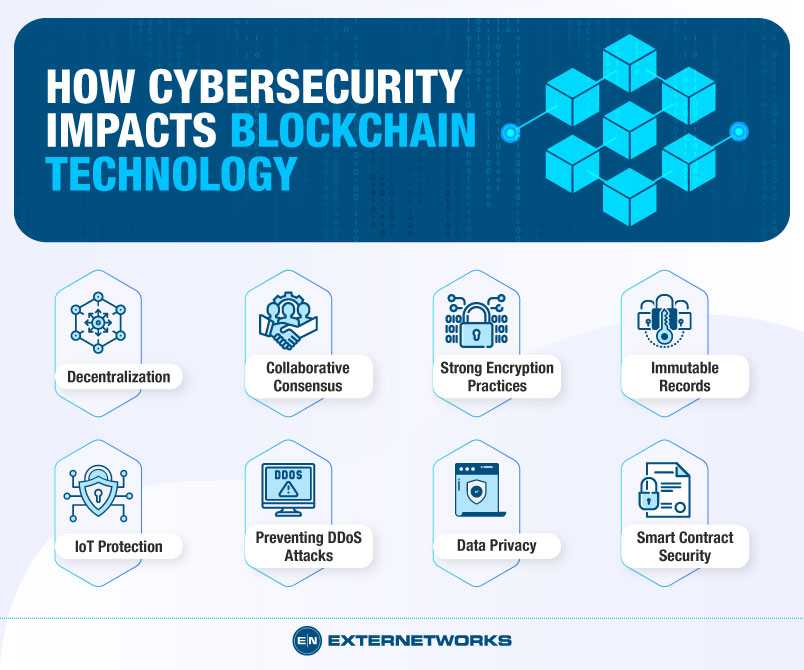Key Highlights
- The year 2024 promises a dynamic shift in the data profession landscape, requiring professionals and job seekers to refine their skills to stay competitive.
- With AI and machine learning taking center stage, don’t overlook the rising demand for data security through blockchain and IoT data analysis.
- Mastering cloud computing platforms like AWS and Azure is no longer optional but essential for managing large datasets efficiently.
- Communication is key! The ability to transform complex data analysis into digestible visualizations and reports for wider audiences is critical.
- As companies strive towards sustainable practices, expect a rise in demand for data professionals who can analyze and interpret ESG (environmental, social, and governance) data.
Introduction
The tech industry in 2024 is changing fast. To succeed, you need to understand this digital transformation well. Certain skill sets are becoming very important for people wanting to enter the data field. The job market is looking for those who have basic data skills and also know advanced technologies. This knowledge can help you gain a competitive edge. According to the U.S. Bureau of Labor Statistics, data scientist positions are projected to grow by 35% from 2022 to 2032, highlighting the increasing demand for data skills. Additionally, the global AI market is estimated to reach $190.61 billion by 2025, indicating the rising importance of AI expertise in the tech industry.

The Top 10 Data Skills Required for 2024 Careers
The world of data jobs is changing quickly. There is a growing need for a variety of skills. Today, it is very important to have a broad understanding of different areas within data. Those who want to work in the tech industry must keep up with these changes to stay competitive.
Here is a list of the top 10 data skills to help job seekers in their search.
1. Advanced Analytics and Data Science Expertise
Data science is very important in 2024. Knowing analytics is essential for job seekers. With this skill, they can look through large sets of data and find valuable insights.
Data science is not only about knowing algorithms. It’s also about using data to tell stories, see trends, and make smart choices. You should have proficiency in inferential statistics, hypothesis testing, and predictive modeling.
Both professionals and companies use data science for many things. This includes improving customer experiences, making operations more efficient, driving innovation, and reducing financial risk. Because of this, having data science skills is very valuable. The employment of data scientists is projected to increase by 36% from 2021 to 2031, reflecting the high demand for these skills.
2. Proficiency in Machine Learning and AI Integration
Artificial intelligence and machine learning are changing many industries. This includes healthcare and finance. Because of this change, more companies are seeking skilled workers in these fields. By learning about AI and machine learning, you can make processes better, boost accuracy, and tailor experiences for customers.
Machine learning is an essential part of AI. It helps systems learn from data and get better over time. Skills in supervised and unsupervised learning, deep learning, and natural language processing will give you a strong competitive edge. Machine learning appears in 69% of job postings, indicating its critical importance.
Understanding these technologies is important, but knowing how to use them in real-life situations is even more crucial. You should also be able to analyze the results in a business setting.
3. Skilled in Big Data Technologies and Tools
We live in a time of Big Data. These are huge amounts of data that regular tools find hard to manage well. Workers in this field must know how to use systems like Hadoop and Spark. These systems help store, process, and analyze data across many computers.
The need for people who can manage the size, speed, and types of big data is growing. Many industries are using this data. Also, having skills in different NoSQL databases, like MongoDB or Cassandra, is more important in the tech industry.
Gaining skills in this area will help keep your career strong. It will also let you help make advances in areas like analytics in real-time, marketing that is personal, and new scientific discoveries.

4. Data Visualization and Communication Abilities
Turning raw data into easy-to-understand visuals is a must-have skill for anyone working with data in 2024. Good data visualization is not just about making nice-looking graphs. It also means sharing complex information in a clear and convincing way.
Knowing how to make interactive dashboards and reports will be very important. You need to change your content and message based on where you are sharing it. Data visualization skills are highly sought-after, with 29% of employers seeking mastery of Power BI and 26.2% of Tableau. This could be in formal business reports or engaging content on social media. Here are some skills to think about developing to keep up:
- Storytelling with data
- Knowledge of data visualization tools like Tableau, PowerBI, or D3.js
- Making convincing presentations
- Breaking down complex data with appealing visuals
5. Expert Knowledge in Statistical Programming Languages
Data analysts need to learn more than just the basics of Excel. It is very important to have a good understanding of programming languages like Python and R. These skills help in doing complex analytics and using machine learning algorithms effectively. Knowing at least one of these languages is now a must-have for job seekers. Employers want people who can write code. Python was explicitly mentioned in 57% of data scientist job offers in 2024.
Python is popular because it is flexible and has many libraries. R, on the other hand, focuses more on statistics. Being able to work with data, create models, and automate tasks through programming will make you stand out among other job seekers.
Think about working on projects and doing coding challenges. This can help you show your proficiency during the interview process. It will give you a competitive edge and prove that you really understand how to use your skills effectively.
6. Mastery of Cloud Computing for Data Management
With many businesses moving their data to the cloud, knowing how to use platforms like AWS, Azure, or Google Cloud is very important. Cloud computing helps companies grow, stay flexible, and save money. This makes it key for handling large amounts of data and for using machine learning models.
It’s good to learn about cloud data warehouses, data lakes, and serverless computing. This will show that you understand this area well. Cloud certification, such as AWS, is required in 19.7% of data science positions.
By adding cloud computing skills to your resume, you show that you can adjust to the changing needs of data-driven businesses. It also shows that you want to learn new technologies and become good at them.

7. Blockchain Technology for Data Security
As worries about data security and privacy grow, blockchain technology is becoming more popular. It can create safe and clear systems for storing and managing data. Blockchain is decentralized and unchangeable, making it perfect for important areas like supply chain management, healthcare, and financial transactions.
Learning the basics of blockchain ideas, like cryptography, consensus methods, and smart contracts, can bring new chances.
Experts in blockchain technology will be very important for keeping sensitive data safe and well-managed in the future.
8. Internet of Things (IoT) Data Analysis
The study of Internet of Things (IoT) data is very important in today’s world where data matters. As technology moves forward, being skilled in IoT data analysis gives job seekers an advantage in the job market. By using IoT data, people can find useful insights in many areas, like healthcare and sustainability. This skill not only shows strong knowledge in data processing and analytics but also shows an ability to understand tech trends that change the industry. Keep up with IoT trends to do well in data analysis jobs.
9. Ethical Data Use and Governance Knowledge
Organizations need to focus on handling data ethically as people become more aware of data privacy. Laws like GDPR and CCPA show how important it is to collect, store, and use data responsibly.
Data experts need to know about data privacy rules and compliance needs. It’s useful to understand data governance frameworks, how to manage consent, and ways to anonymize data.
Promoting ethical data practices helps build trust. It also helps prevent legal problems and protect the reputation of your organization.
10. Collaborative Data Project Management Skills
Effective project management skills for team collaboration are very important for successful data projects in 2024 and beyond. In the fast-changing tech industry today, being able to organize and lead teams on complex data analytics projects is very important. These skills include managing the project timeline and tasks while also encouraging teamwork. It is essential that team members can communicate well and share their knowledge. By mastering collaborative project management, job seekers can gain a competitive edge in the job market. This shows their ability to complete projects successfully.

Emerging Trends in Data-Driven Careers
The data world is always changing. To grow in your career, it’s important to stay updated on new trends. This helps you adapt and keep your skills fresh. By always learning and knowing about new technology, you can become a valuable asset in your field.
Two important trends to watch are data democratization and a rising need for professionals who focus on data governance and ethics.
The Rise of Data Democratization and Accessibility
Data democratization is making it easier for more people in organizations to access data. This means anyone, no matter their technical skills, can use it. Self-service analytics tools let business users from various sectors look into data, find insights, and make better decisions without needing a lot of help from IT teams. About 74% of firms express a desire to be “data-driven,” yet only 29% effectively connect analytics to action, highlighting the need for improved data democratization strategies.
This change creates chances for data professionals. Those who have the skills to connect technical knowledge with business understanding will be needed. People who can make complex data simple for those who are not technical will be in high demand.
To do well in a world focused on data, mastering data storytelling and improving communication skills will be very important.
Increasing Demand for Data Governance and Ethics Specialists
As data becomes more important in business, its responsible and ethical use is very important. Companies feel more and more pressure to build strong data governance systems and to follow changing rules about data privacy and security. Approximately 60% of corporate leaders have prioritized data governance, underscoring its importance over AI for data platforms and security practitioners by 80%.
Due to these concerns, there is a rising need for skilled people in data governance, ethics, and compliance. Companies want people who can create and carry out data policies, manage data quality, and make sure they follow regulations.
This area of specialization offers a great chance for career growth. There are clear talent shortages in this field, which makes it even more valuable.
Bridging the Skills Gap: How Companies are Adapting
The fast change in the data world has created a clear skills gap in the tech industry. Companies are struggling to find talented people who can handle and understand data well. To solve this problem, organizations are taking action. They are helping current employees learn new skills and working with schools to build a future talent pool.
These efforts aim to give all employees the skills they need to succeed in a data-focused job. This way, they can help drive growth and bring new ideas to their teams.
Upskilling Programs and Data Literacy Initiatives
Many companies see the need to improve their workforce’s data skills. They are spending a lot on training programs and data literacy initiatives. These programs help employees learn the basics needed to work well with data, no matter what their past experience is in data analysis.
Upskilling usually includes online courses, workshops, and hands-on training. This mix helps different people learn in ways that suit them and fits their experience levels. About 63% of large businesses plan on increasing the data literacy of their employees, highlighting the importance of these initiatives.
These efforts not only give workers valuable skills for their careers but also help create a data-driven culture in the company. This leads to better decisions and a more engaged workforce.
Partnerships Between Educational Institutions and Businesses
To ensure a steady pipeline of future talent equipped with the latest data skills, forward-thinking businesses are increasingly forming strategic partnerships with educational institutions. These collaborations take on many forms, including:
|
Partnership Type |
Description |
|
Curriculum Development |
Collaborating with universities to create data-focused courses and programs that align with industry needs. |
|
Internship and Apprenticeship Programs |
Offering practical experience to students, providing them with valuable, real-world exposure and skills. |
|
Mentorship Programs |
Pairing industry experts with students for guidance and career development support. |
These partnerships represent talent acquisition trends that benefit both parties involved. Approximately 82% of leaders expect employees to have basic data literacy, underscoring the importance of these educational partnerships. Businesses gain access to a pool of qualified candidates while shaping future professionals, and academic institutions ensure their curriculum aligns with real-world demands.

Real-World Applications: Data Skills in Action
Data is very important in many industries. It helps create new ideas, guides plans, and affects our daily lives. In healthcare, data changes how services are provided. In manufacturing, it helps improve sustainability. For both workers and businesses, knowing how to use data skills in real-world situations is essential.
We have put together two case studies to show how these key data skills are used today.
Case Study: Transforming Healthcare with Data Analytics
The healthcare industry is changing a lot with data analysis playing a big role. Data scientists and analysts are using large amounts of data—from electronic health records to data from wearable sensors—to help patients get better care, improve service delivery, and lower costs.
Predictive analytics is helping find patients at high risk. This makes it possible to act quickly and avoid hospital readmissions. Machine learning algorithms are helping diagnose diseases, understand medical images better, and create personalized treatment plans.
With insights from data, healthcare workers can make smart choices. This leads to better patient care, more efficient operations, and a stronger healthcare system. A study found that healthcare data analytics accounted for 53% of the variation in organizational performance, underscoring its impact on ROI and sales.
Case Study: Leveraging Data for Sustainability in Manufacturing
Sustainability is not just a trending topic in manufacturing. It is essential for businesses today. Companies want to find ways to lessen their impact on the environment, cut down waste, and use resources better—and data is key to this process.
Data scientists and analysts are very important. They look at things like how much energy is used, how products are made, the supply chain, and the materials used. This helps them find ways to improve. They apply machine learning to enhance production lines, limit downtime, and forecast maintenance needs. This helps to lower costs and reduce harm to the environment. Data-driven quality control can reduce product defects by up to 30%, highlighting the efficiency gains possible through data science.
Manufacturers are using data insights to create a future that is more sustainable and effective. They are cutting their environmental impact while also improving their efficiency and making more profit.
Conclusion
In summary, learning the key data skills needed for jobs in 2024 is very important. These skills help you stay competitive in the changing job market. Skills like advanced analytics and ethical data governance are essential for success in jobs that focus on data. As businesses value data literacy more and use new technologies, developing these skills can really make a difference in your career. To stay ahead, consider joining upskilling programs. This will help you understand data applications better. Be ready for the future of work. Your data skills will be in high demand in many industries.
References
- https://www.statista.com/statistics/1369216/uk-worker-shortages-by-sector/
- https://www.statista.com/statistics/1445356/recruitment-top-uses-for-ai
- https://www.trainingmagnetwork.com/resources
- https://www.shrm.org/topics-tools/news/talent-acquisition/candidate-resentment-rise
- https://www.bbc.com/worklife/article/20200612-black-lives-matter-do-companies-really-support-the-cause
- https://fortune.com/2022/11/16/tech-layoffs-human-resources-diversity-dei-teams/
- https://www.gartner.com/en/articles/how-to-navigate-pushback-to-diversity-equity-and-inclusion-efforts
- https://www.shrm.org/topics-tools/news/talent-acquisition/real-costs-recruitment

